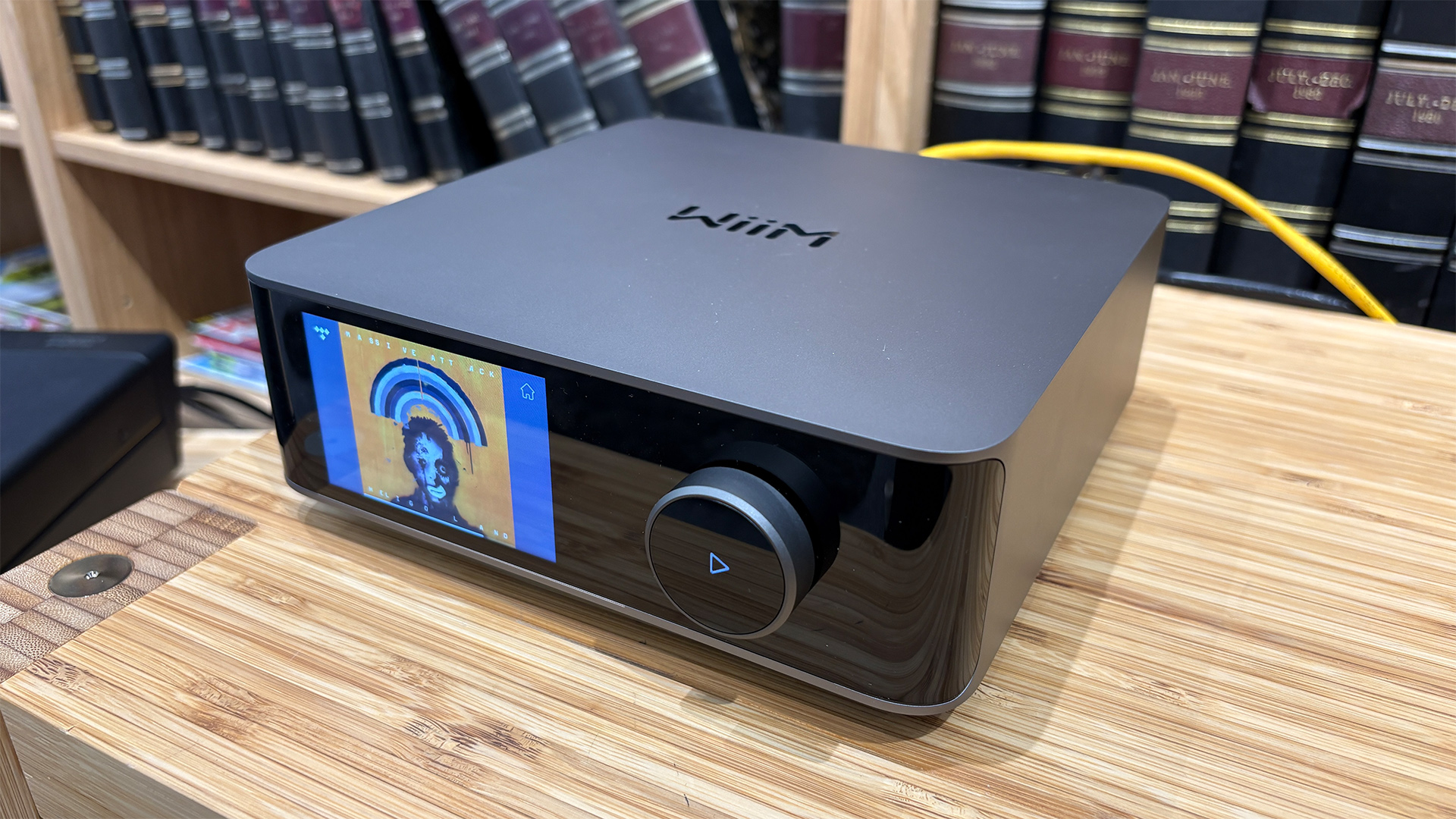LG C3 vs LG G3: which 2023 OLED TV should you buy?
Should you spring for MLA tech or stick with the C-series?
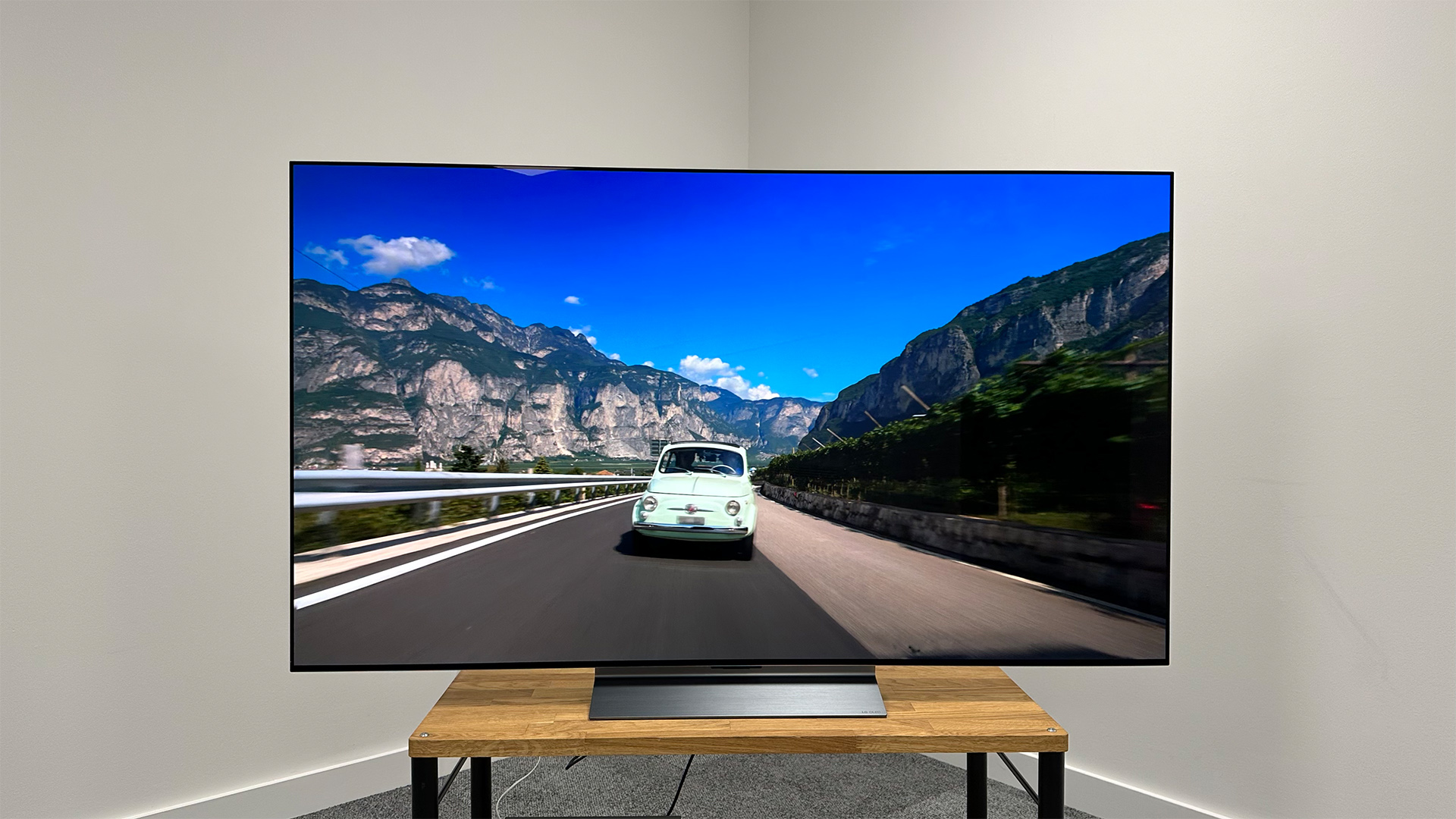
The C3 is only a minor upgrade on the C2 it replaces, and yet the price has been increased. Sound quality aside, it's still a very good TV, particularly for gamers, but you can now buy better for the same money.
Pros
- Balanced, authentic picture performance
- Very user-friendly
- Flawless gaming specs
Cons
- Minor upgrade on the C2
- More expensive than the C2
- Dull sound
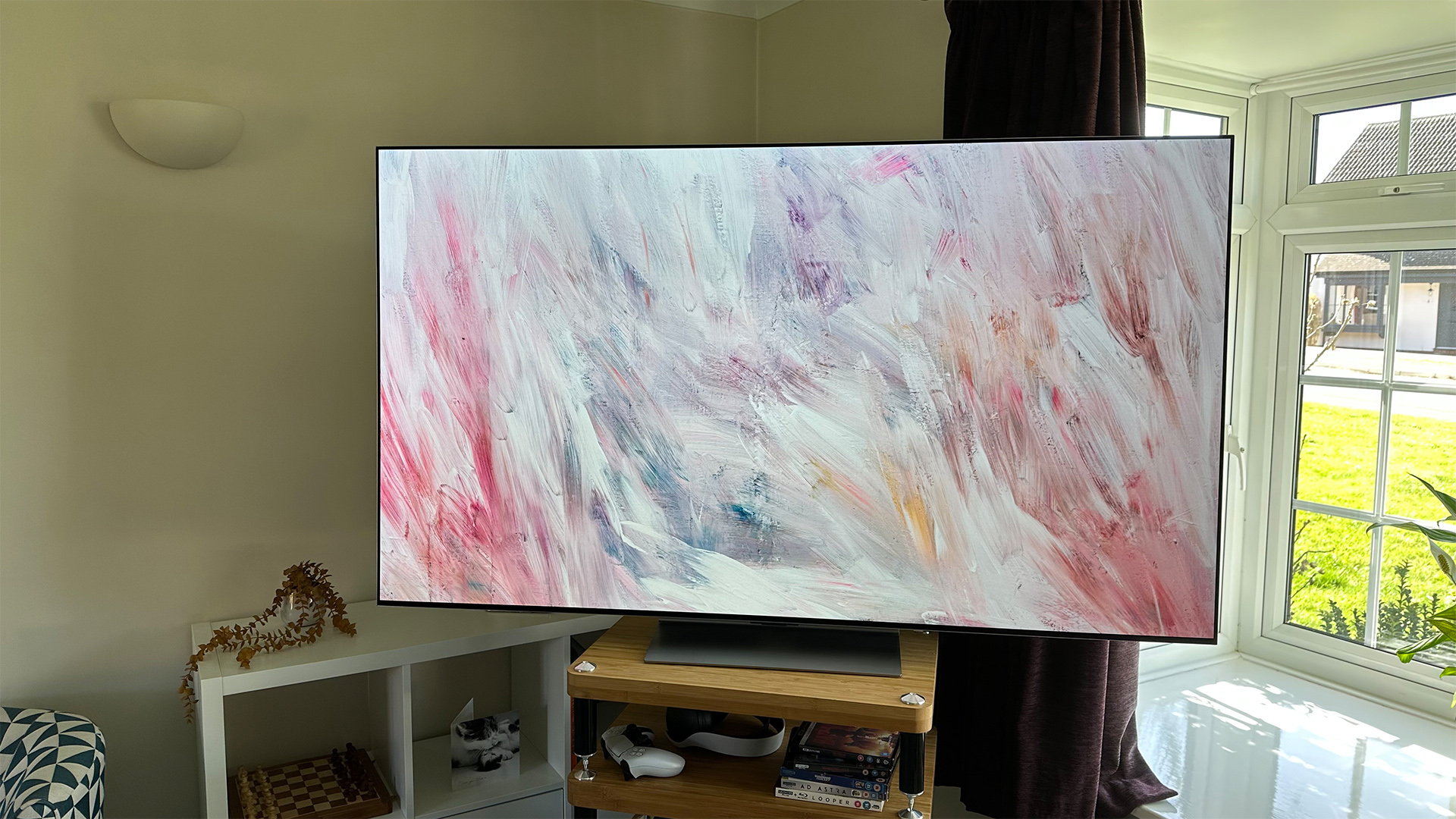
MLA tech helps the G3 deliver superbly bright and vibrant highlights without undermining picture authenticity or sacrificing OLED's perfect blacks. Sound is poor, but this is otherwise a stunner.
Pros
- Brilliantly bright and vibrant highlights
- Still balanced and natural
- Flawless gaming specs
Cons
- Doesn’t come with a stand
- Pale colours in low-light scenes
- Even duller sound
The LG G3 and C3 were two of the most hotly anticipated TVs of 2023, and while the former impressed from the very start, the latter didn't wow us to begin with, although the 48- and 42-inch versions eventually won us over. However, both TVs have been replaced by their respective 2024 models now and we've reviewed them both.
Both the C4 and G4 prove that LG is back on its A-game, as both TVs wowed us in their own ways during their time in our AV testing room. The C4 is a clear upgrade in both the picture and sound departments over the C3, while the G4 takes brightness and contrast to the next level.
But we're not here to talk about those TVs, we're focusing on the 2023 models here as you can still find these models on sale at a discount. This means that if you're not fussed about having the very latest model number stamped onto your TV, then you can snap up an excellent OLED TV at a bargain price. Before you do that, you might want to compare the two models, as there are some key differences.
The key differentiators are that the G3 has Micro Lens Array (MLA) screen technology and a heatsink, while the C3 does without. This has a major impact on brightness, as the G3 can exert its panel with the heatsink and utilise the MLA tech to focus the light, resulting in a brighter image overall. But is shelling out the extra dough for a brighter TV worth it? That's what we're here to find out.
- What to expect from LG in 2024: QNED and OLED TVs
- QNED vs OLED: what's the difference between these TV technologies?
LG OLED G3 vs C3: price
| Size | C3 | G3 |
|---|---|---|
| 42 | £1500 / $1400 / AU$TBC | No such model |
| 48 | £1600 / $1500 / AU$TBC | No such model |
| 55 | £2100 / $1900 / AU$TBC | £2600 / $2500 / AU$TBC |
| 65 | £2900 / $2600 / AU$TBC | £3500 / $3300 / AU$TBC |
| 77 | £4000 / $3600 / AU$TBC | £5000 / $4500 / AU$TBC |
| 83 | £6500 / $5300 / AU$TBC | £7500 / $6500 / AU$TBC |
You can see the launch pricing of both TVs above. These prices have since dropped significantly, but the difference between them remains substantial.
The 55-inch G3 is currently £1599 compared to £1199 for the equivalent C3. At 65 inches, the G3 is £1879 and the C3 £1499, while the 48-inch C3 is £979 and the 42-inch £836 (the G3 doesn't come in sizes under 55 inches).
** Winner: LG C3 **
The latest hi-fi, home cinema and tech news, reviews, buying advice and deals, direct to your inbox.
LG OLED G3 vs C3: build
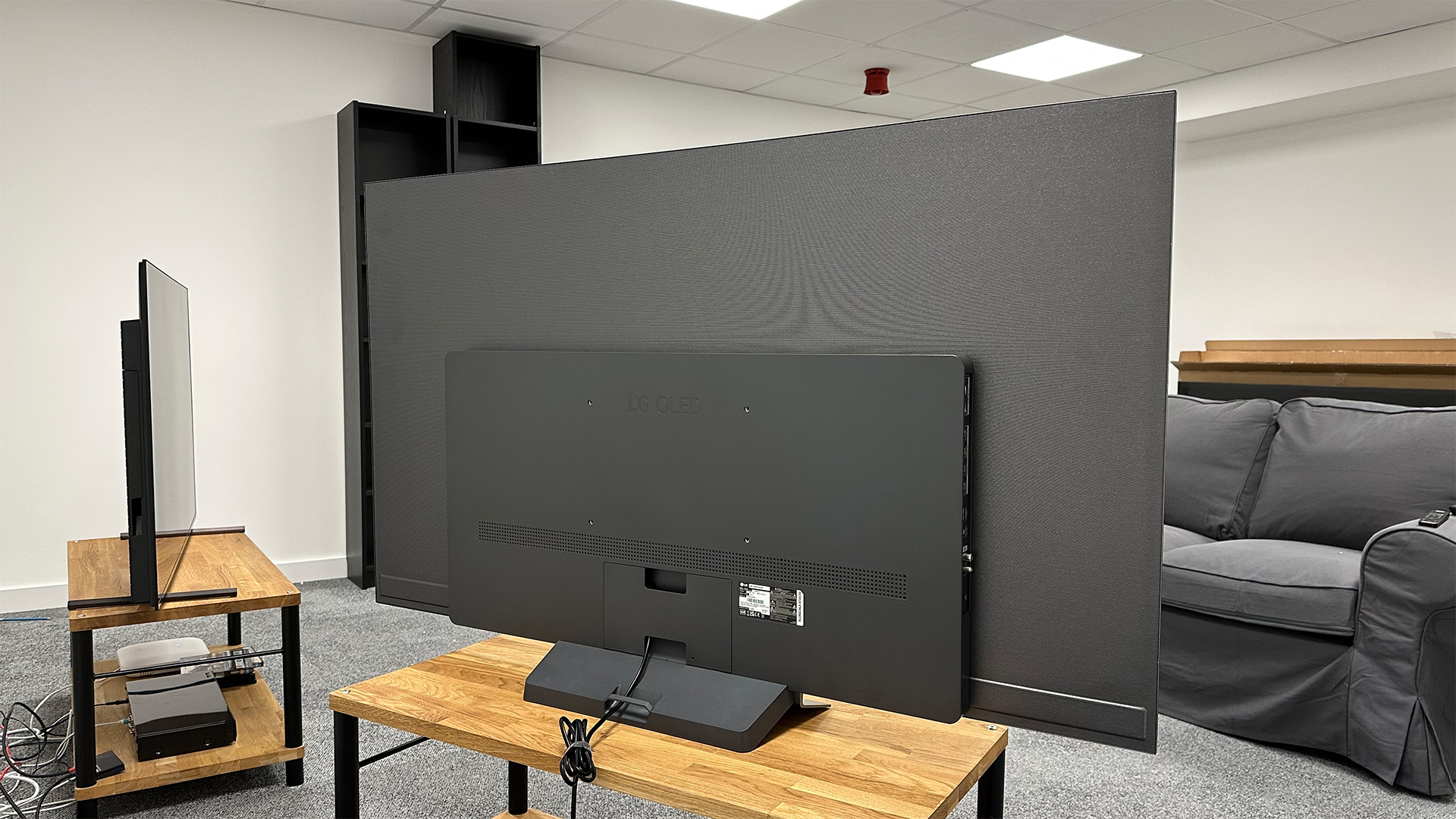
Both TVs look essentially identical to their respective predecessors, and that's no bad thing in either case.
As a 'Gallery' model, the G3 is designed to be wall mounted so has a picture frame-like uniform thickness of just 2.4cm (1") and comes bundled with a mount that allows it to sit more or less flush with a wall. If you're not going to mount it on a wall, you'll need to budget for a separate stand – either the rather expensive official one or a third-party alternative that connects to the set's standard VESA points.
Don't fancy wall-mounting? The G4 successor model comes with a stand at 55 and 65 inches, so could be worth waiting for.
The C3, on the other hand, is your more traditional TV package, with an included stand. This stand has a usefully compact footprint so that the TV can be placed on quite narrow furniture. The chassis itself is pretty spectacular – at 4.5cm (1.8"), it's thicker than the G3 in some parts, but it combines this thicker section with a brilliantly thin panel section. It's also astonishingly light by the standards of large TVs.
Beauty is in the eye of the beholder, though, and which set you feel is more stylish will probably also depend on whether you're planning to wall mount your new TV. On the other hand, the G3 does have one undeniable design advantage – a new and very effective anti-reflective coating. It's this that gives the more expensive model the win in this round.
** Winner: LG G3 **
LG OLED G3 vs C3: features
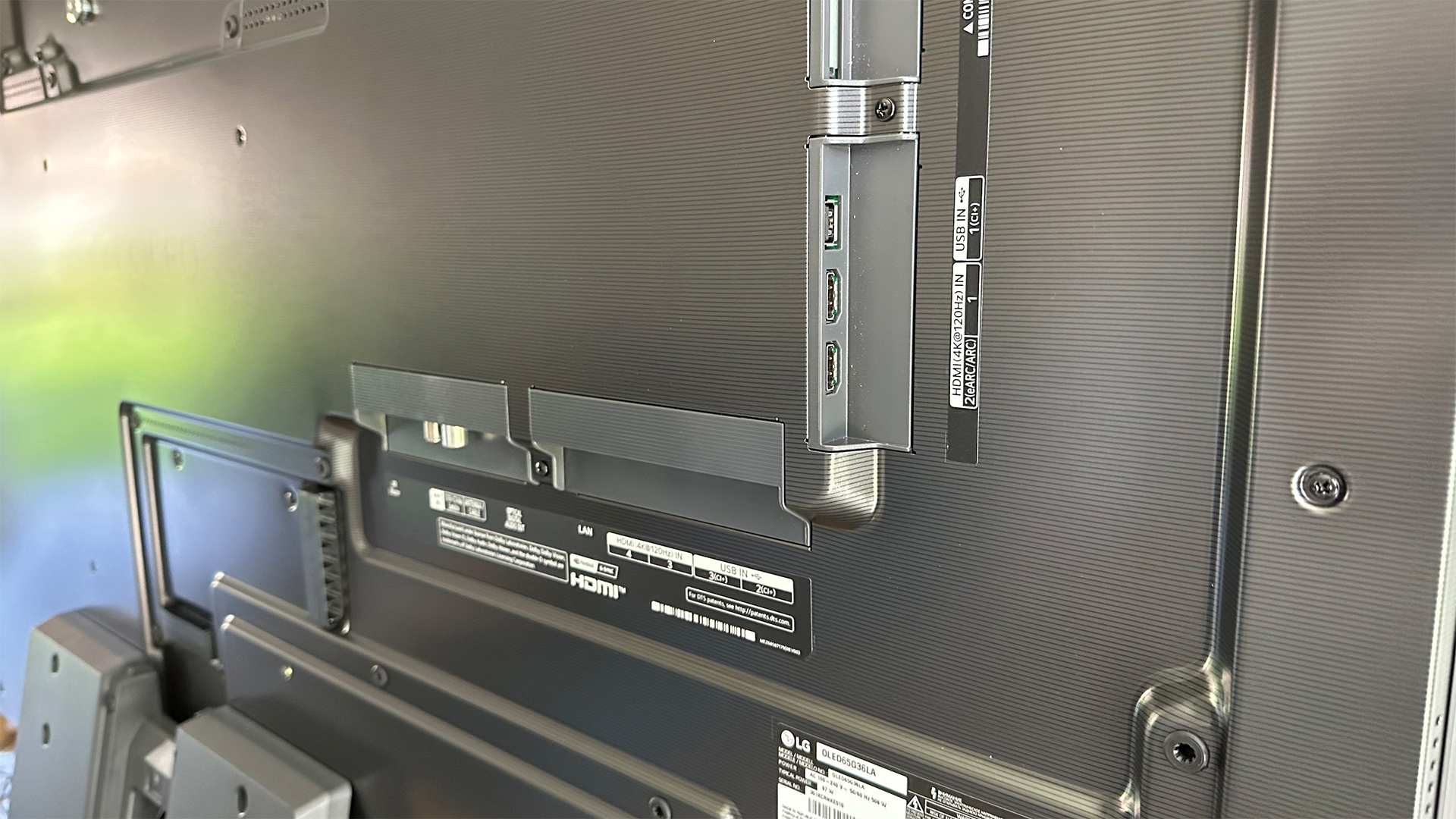
The big difference between the two sets in terms of features is the panel technology, with the G3 boasting both MLA technology and a heatsink and the C3 having neither. We'll cover the impact this has in the next section.
Another, smaller difference between the two models is that the C3 has a 2.2-channel 40W sound system, while the G3 has a 4.2-channel 60W system.
Otherwise, the two TVs have essentially the same feature set. Both are powered by the Alpha 9 Gen 6 processor, which adds a handful of new picture-processing features. These include AI Super Upscaling Pro, which is designed to upscale sub-4K sources while reducing noise but preserving intentional film grain; OLED Dynamic Tone Mapping Pro, which breaks the image down into 20,000 zones (rather than the 5000 of before) for separate HDR optimisation; Object Enhancer, which sharpens foreground characters and props; and HDR Expression Enhancer, which applies specific tone mapping to those foreground elements.
The processor can also up-mix all sound to 9.1.2 virtual channels, and the audio systems of both models can be used in conjunction with one of LG's new soundbars.
The operating system is the same across the entire 2023 LG OLED range, with the new webOS 23 bringing a more organised approach to the somewhat cluttered and dense home screen of last year's models. It includes all the relevant streaming options, including Netflix, Amazon Prime Video, Disney Plus, Apple TV+ and more, but instead of multiple, sometimes slow-to-load pages of additional content and features, these elements are instead bundled into folders called Quick Cards. When testing the G3 and C3, we found this made the user experience significantly snappier than that of the previous year's models.
Both the C3 and G3 are flawlessly well-specified for gaming. Both boast four HDMI 2.1 sockets with full support for the advanced 4K/120Hz, VRR and ALLM features of the Xbox Series X and PS5. Dolby Vision gaming is supported, too, and right up to 4K/120Hz, and there's an HGiG mode for improved HDR tone mapping with many games.
Gamers who prefer a desk over a sofa setup may gravitate towards the C3, as it has that desk-friendly 42-inch model, making it a perfect monitor stand-in.
LG's fan-favourite Game Optimiser makes a return on the C3 and G3, with quick access to the likes of HDR game settings, frame rate information and a toggle for ALLM. This gaming hub includes a few features that were new for 2023, most notably a new game audio sub-menu for adjusting game-specific sound settings.
** Winner: LG G3 **
LG OLED G3 vs C3: picture
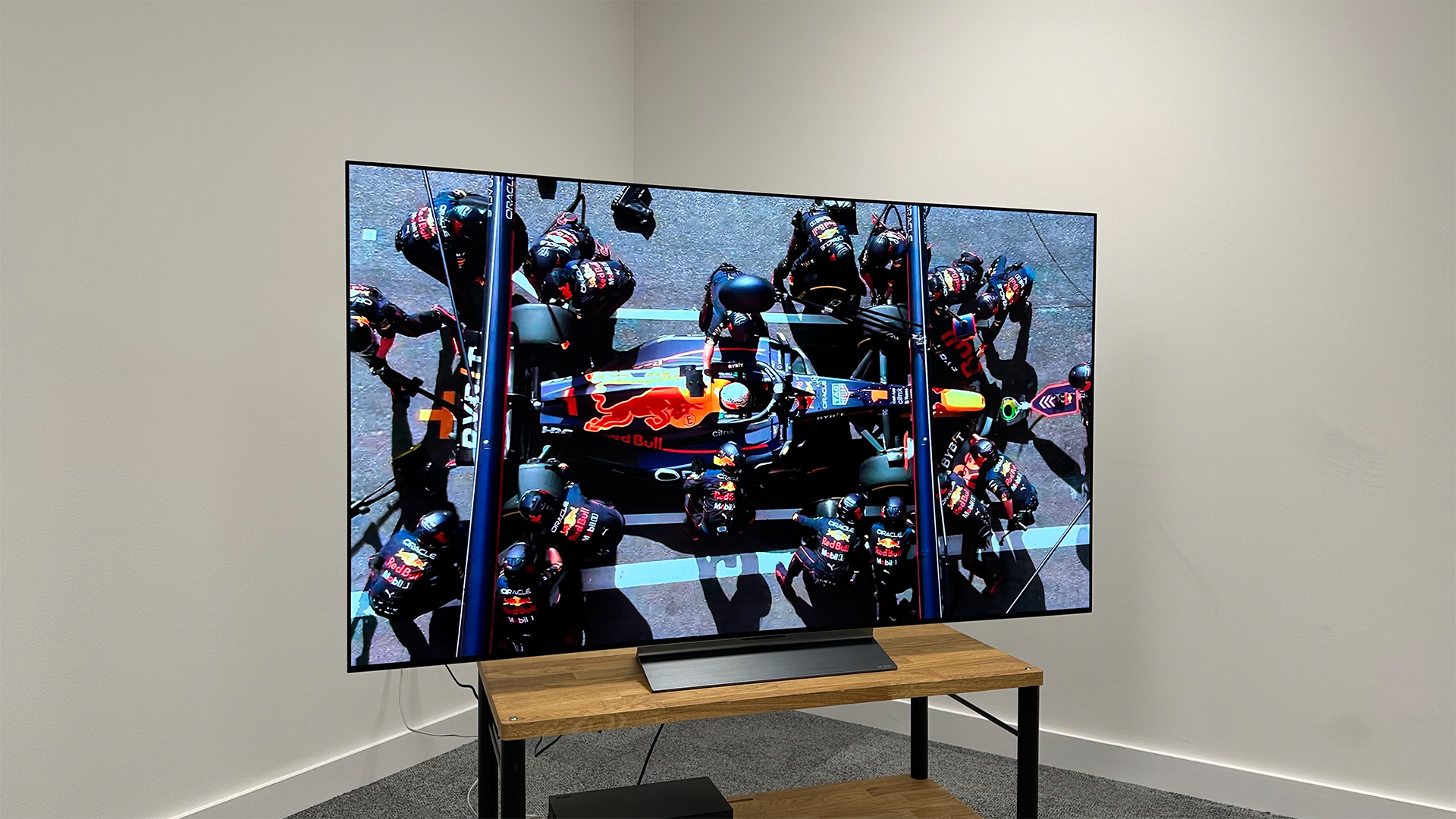
As expected, picture performance is where the biggest differences between these two sets lie.
Both are what LG calls OLED Evo models, which means they use the latest WOLED (as in 'white' OLED) panel technology from LG Display (which is distinct from LG Electronics) but, as mentioned, the G3 has a couple of extras that the C3 doesn't. For starters, as was the case in 2022, the G-series has a heatsink that the C-series does not. This allows the set to be pushed harder (i.e. brighter) without any extra stress being applied to the light-emitting OLEDs.
More excitingly, the G3 also gets a panel technology called Micro Lens Array (or MLA for short).
MLA refers to a layer of microscopic lenses that focus the light output from the television towards the viewer. This takes advantage of existing light output (in other words, the OLEDs themselves don't need to work any harder than they did before) and boosts it without the need for further power consumption or any increase in the possibility of OLED burn-in from overexertion. It's an admittedly smart solution from LG, and the company claims it produces serious results.
The intention of including MLA is to increase brightness on these OLED panels, which has been viewed by some people as a longstanding flaw of OLED technology.
The addition of MLA to the G3's panel means that it's able to hit a peak brightness figure of over 2000 nits, albeit in its rather garish Vivid mode. The more authentic Cinema and Filmmaker modes can still hit peaks of almost 1500 nits, though, which is a huge improvement over the roughly 1000-nit limit of the G2.
It's worth remembering that the G2 was already brighter than the C2, which was limited to around 800 nits, and LG has said that the C3 isn't brighter than the TV it replaces.
Having now fully tested the G3, we can say for sure that its extra brightness is significant, even in our preferred Cinema mode. Highlights sparkle that much more and, contrary to some expectations, bright colours are actually more vibrant than before, adding up to an image with significantly more punch. Blacks are still as inkily deep as is expected from OLED, but there's more shadow detail so you miss less in dark scenes.
The only way in which the G3 isn't better than the G2 is in low-light colours, which are peculiarly pale.
We've also now fully tested the C3 and, in short, it performs very similarly to the C2 it replaces. That makes it a very natural and authentically balanced picture performer, but it clearly lacks the dynamism and impact of the MLA-boosted G3. That's to be expected, but more of a problem for the C3 is that some other brands have upped their game this year, and the C3 has now fallen behind rivals such as the Sony A80L.
In short, the C3 is still a very good TV, but you can now buy better for the same money, and the G3 is also worth the extra money if you can afford it.
** Winner: LG G3 **
LG OLED G3 vs C3: sound
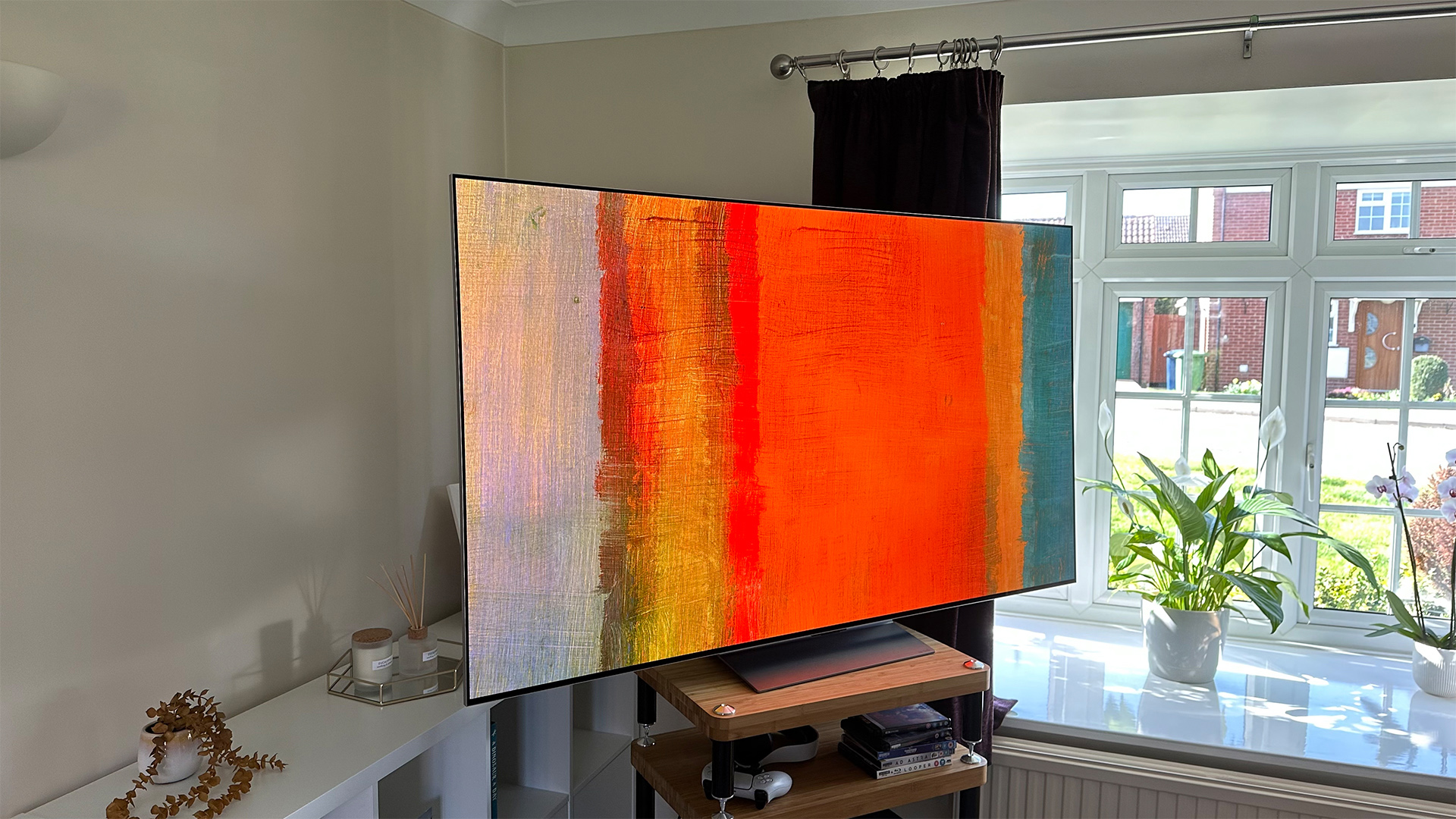
While the G-series is more expensive than the C-series, there have been times in the past when the latter has sounded better than the former. 2021's C1 was a more engaging performer than the G1, for example, though 2022's G2 did sound better than the C2, with a louder, more impactful performance.
In 2023, things flipped back but, to be brutally honest, neither TV sounds very good. LG appears to have gone for a smoother, more rounded-off sound for both models, but in doing so it's sacrificed a lot of punch and excitement, resulting in a rather dull delivery overall. This is particularly true of the G3, which is very boring indeed, but the C3 isn't that much more engaging.
Both models can sound a bit more exciting with the AI Sound Pro feature, but this is also bafflingly harsh to a degree that we find unlistenable. Meanwhile, the Dolby Atmos mode, which is on by default, adds space and weight to the presentation but also makes both sets prone to flappy distortion at the bottom end. Listening with both settings switched off is the least bad option.
To be clear, both sets are perfectly capable of delivering clear, intelligible sound for everyday TV, but neither has the enthusiasm to satisfyingly deliver a movie soundtrack. A soundbar is a must, regardless of which model you buy.
** Winner: LG C3 **
LG OLED G3 vs C3: verdict
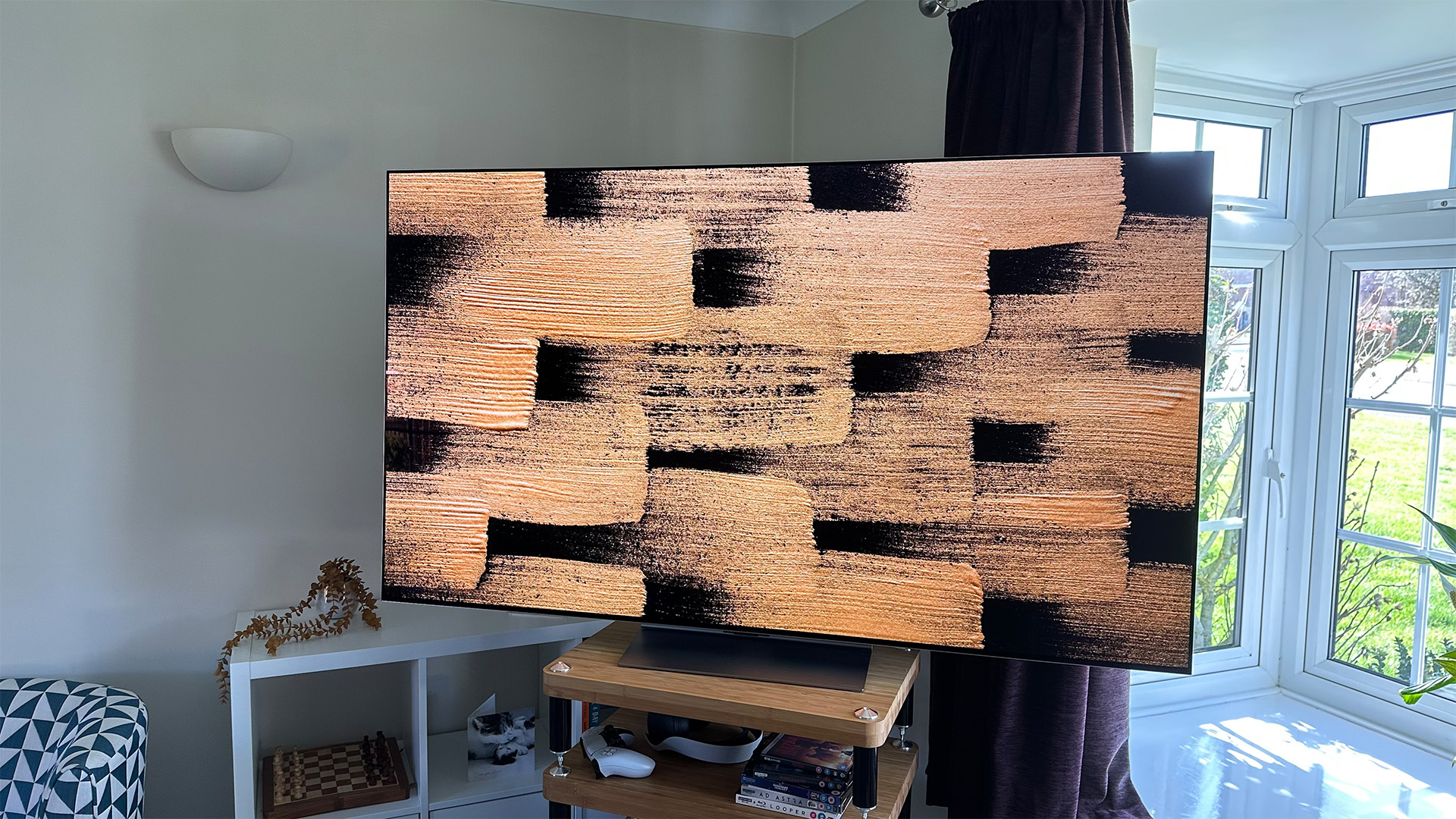
LG's strategy with the G3 and C3 is pretty clear-cut. The flagship G3 gets the majority of the upgrades, with the MLA tech (and a heatsink) stealing the spotlight and leading to a much brighter OLED TV than LG has ever produced before. Having fully tested the G3, we know that it delivers on its promise and is a delight to watch thanks to its supremely impactful picture.
The C3, on the other hand, is a fairly minimal upgrade over 2022's C2. In short, LG has increased the performance gap between the C3 and G3.
The G2 was brighter than the C2, but we felt that for most people, the C2 was the better buy. But the G3 is more obviously better than the C3, and it's absolutely worth stretching to if you can.
Do make sure you also budget for a dedicated sound system, though.
** Overall winner: LG G3 **
MORE:
Read our LG OLED G3 vs G2 comparison
Check out the LG M3 OLED wireless TV: is this the TV of the future?
Best TVs: brilliant budget to premium 4K Ultra HD
Tom Parsons has been writing about TV, AV and hi-fi products (not to mention plenty of other 'gadgets' and even cars) for over 15 years. He began his career as What Hi-Fi?'s Staff Writer and is now the TV and AV Editor. In between, he worked as Reviews Editor and then Deputy Editor at Stuff, and over the years has had his work featured in publications such as T3, The Telegraph and Louder. He's also appeared on BBC News, BBC World Service, BBC Radio 4 and Sky Swipe. In his spare time Tom is a runner and gamer.
- Lewis EmpsonSenior Staff Writer

